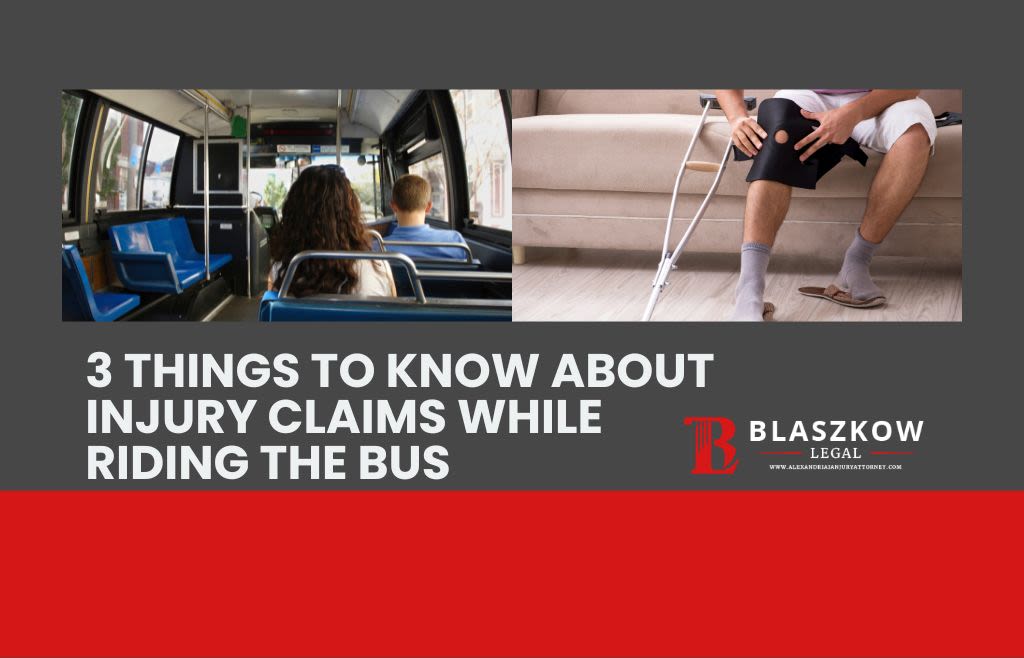
Riding the bus is an economically sound mode of transportation, and it’s relatively safe. In fact, according to the American Public Transportation Association, it’s ten times safer than driving an automobile. However, that doesn’t mean that accidents don’t still happen. In the event of an accident, particularly a bus accident, there is a unique set of challenges. Understanding liability and recovery in these cases is crucial for collecting appropriate compensation. For instance, the liability in bus accidents can pivot significantly depending on whether the negligence is on the part of the bus driver or another vehicle’s driver. This distinction greatly influences the direction of the claim and the source of recovery for the injured parties.
1. Who’s at Fault Determines Method of Compensation
When the bus driver is found to be negligent, potentially due to distracted driving, failure to adhere to traffic laws, or inadequate training, the public transit authority or the bus operator’s insurance is typically the primary source for recovery. This situation underscores the importance of thorough investigations and gathering substantial evidence to substantiate the claim against the entity responsible for the bus operations.
Conversely, if another driver’s negligence caused the accident, the claim would then shift focus to that driver’s insurance for compensation. However, it’s essential to highlight that simply being a passenger on the bus does not automatically place liability on the bus or its operators for compensation.
Additionally, there are times when BOTH parties may be negligent: the bus driver/transit company, and the other vehicle. This often breeds alot of finger-pointing between them. You should contact an experienced bus accident lawyer right away.
2. The Negligent Driver May Not Have Adequate Insurance Coverage
Even more challenges arise when addressing the issue of insurance coverage. Often, the total personal injury insurance available per passenger is not enough to cover all incurred damages, pushing the need to explore ‘underinsured’ personal injury cases. Virginia law provides an avenue through resident relative coverage, which is a fascinating aspect of these claims. It allows individuals, under certain circumstances, to seek additional coverage through policies held by family members with whom they reside.
Resident relative coverage is a particularly misunderstood aspect of personal injury law as it does not cover cohabitating partners–only immediate family members and spouses. Therefore, if you live with roommates or are unmarried, you cannot bank on qualifying for this type of coverage. It’s also worth mentioning that Virginia law safeguards against any impact on insurance premiums as a result of Uninsured Motorist (UIM) cases. This provision offers some relief to claimants concerned about the financial repercussions of pursuing such claims.
3. Your Attorney is Your Greatest Resource
This nuanced understanding of liability, insurance coverage, and the strategic approach to recovery in bus accident cases is vital. Bus accidents typically result from a complex interplay of factors rather than a singular cause. These can include driver mistakes, mechanical malfunctions, the state of the roads, or the behavior of other motorists. To fully comprehend the underlying causes and their effects on the incident, a thorough investigation is essential to dissect and analyze these contributing elements.
Navigating Notice – who owns/operates the bus?
Most transit buses are owned and operated by a municipal entity, such as a city, county, or state department of transportation. If the government operated the bus, then there is a whole new hurdle involved in your bus accident case that has to be fleshed out.
Whenever you have a claim against a municipality, county, or state, then you have to provide proper notice to that governmental entity. Proper notice is often a letter that sets out the specifics of the collision: date, time, location, bus involved, injuries, etc. This may seem like a mere nicety, but it can be a procedural case killer. If the entity was not notified in time, then they can defeat your case.
In Virginia, for example, if the time to provide notice to towns and municipalities is only six months after the collision!
If the bus involved was owned or operated by the state, then the law gives you 1 year from the date of the collision to provide notice.
Of course, there can be yet another layer of complication when buses are involved: some buses are owned by the government, but are operated by a private company. Let us look at the Fairfax Connector, for example, serving riders in Fairfax County, Virginia. The buses are owned by the county government, but operated by a private company called TransDev. So, if you were involved in a crash as a passenger on a Fairfax Connector bus, you may have a claim against 1) the other motorist, 2) TransDev, and 3) Fairfax County!
Get Help from a Bus Accident Attorney Today!
The aftermath of a bus accident can be overwhelming, with the potential for significant financial and emotional distress. In such times, having a knowledgeable legal team by your side is invaluable. At Blaszkow Legal, PLLC, we are committed to treating every case with the seriousness it deserves. If you or a loved one has been involved in a bus accident, schedule a consultation today by calling (703) 879-5910 to discuss your case and explore your legal options. Your path to obtaining the compensation you deserves starts with selecting the right legal team to fight you!

